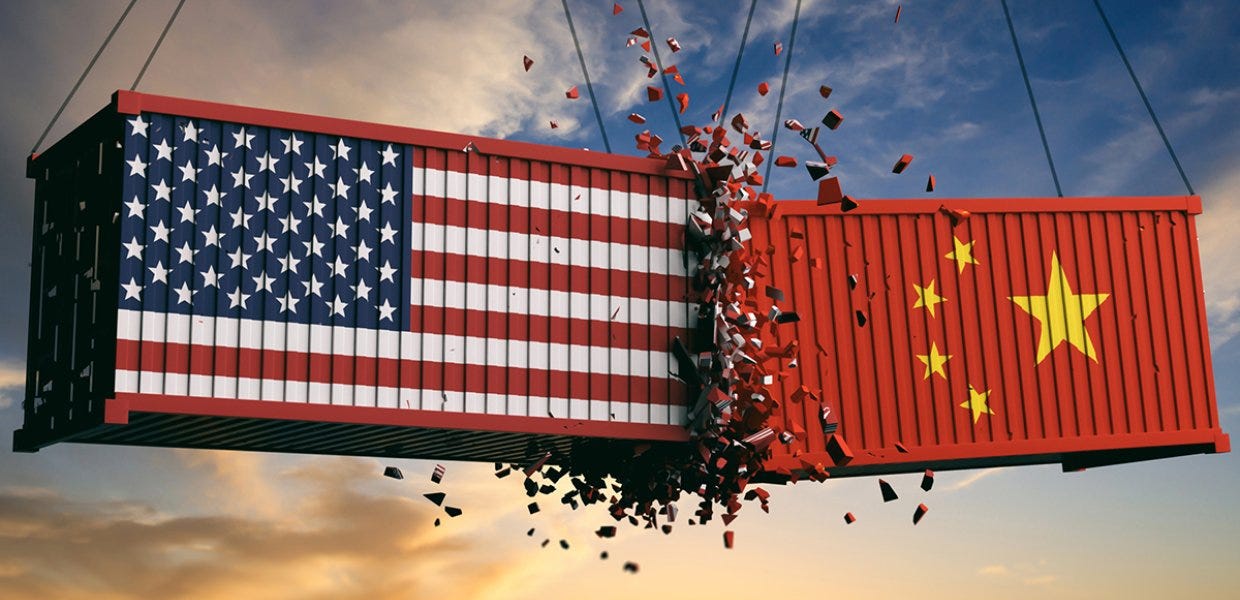
History of Trade Wars
Trade wars have been ongoing since nations started their trade with one another. In the 17th century, colonial powers struggled over the ability to trade exclusively overseas colonies. Such commercial wars have a lengthy history in the British Empire.
The opium wars with China in the 19th century are an example, when the Chinese emperor declared opium production in India illegal, the British continued to send it to China. After many attempts to resolve the disagreement, the emperor dispatched troops to seize the narcotics. However, the British navy's strength won out, and China agreed to let more Western trade into the country.
Enacted in 1930, the Smoot-Hawley Tariff Act raised duties to protect American farmers against European agricultural products. This measure boosted the already high import tariffs to over 40%. As a result, some countries responded against the US by imposing higher duties of their own, and global trade fell. As the United States entered the Great Depression, spurred in no small part by disastrous trade policies, President Franklin D. Roosevelt began to enact legislation to lower trade barriers, including the Reciprocal Trade Agreements Act.
Consequences of Trade Wars on the US and China
The trade war negatively impacted the economies of both countries. It has resulted in higher expenses for the manufacturers, higher prices for consumers, and financial challenges for farmers in the USA. The trade war in China has slowed economic and industrial output growth. Many American corporations relocated their supply lines to Asia, raising economic fears of ‘economic decoupling’ between the USA and China. It also caused stock market turbulence. The world suffered the dual effects of this war.
Some nations suffered from the economic consequences of this trade conflict. However, other nations have profited from increasing manufacturing as production was relocated to them.
Impact of US-China Trade Internationally
International trade has become a critical issue for both developing and developed nations due to trade deficits, balance of payment issues, heavy imports, and export duties. The transformation of the cold war between the US and China into a trade war stems from China's rising international trade, economic aggression, and the declining market share of the United States.
This conflict has significantly slowed global economies, as it represents a battle for power and economic dominance. However, the trade tensions have created opportunities for Southeast Asian nations, including India.
Michael Pettis, an expert on China’s economy, quotes from the Carnegie Endowment for International Peace article, the real problem is that, over the past two decades, it has become increasingly difficult for the world to fix its massive trade imbalances; the very mechanisms that created them also make them harder to absorb. This is because trade surpluses and deficits are mainly the result of domestic savings surpluses and deficits, which are themselves a result of domestic income inequality.
Until such inequality is substantially reversed, high-savings countries will continue to use trade to pass the effects of their distortions onto other nations, such as the United States.
Conclusion
For the United States, the only way out may be by reconsidering how willing it is to “absorb everyone else’s excesses.” This comes as one of the reasons for why “trade wars are inevitable."
Various viewpoints on the existence of trade wars keep coming from scholars who have their explanations, reasonings, fact-file analyses, and conclusions. Mostly, the world considers trade wars as a strategy to protect domestic trade (also known as trade protectionism). This may sound different from what Michael Pettis has to say.
In general, any economic phenomenon or strategy creates opportunities for some and generates a threat for others.
Shaurya Kohli is a senior at Amity International School in India. In his leisure time, he enjoys painting, reading books, and watching podcasts.
Skip the Jargon Inc. supports the next generation of teenage financial writers across the globe. Interested in joining our mission?
Apply to join our board today!




